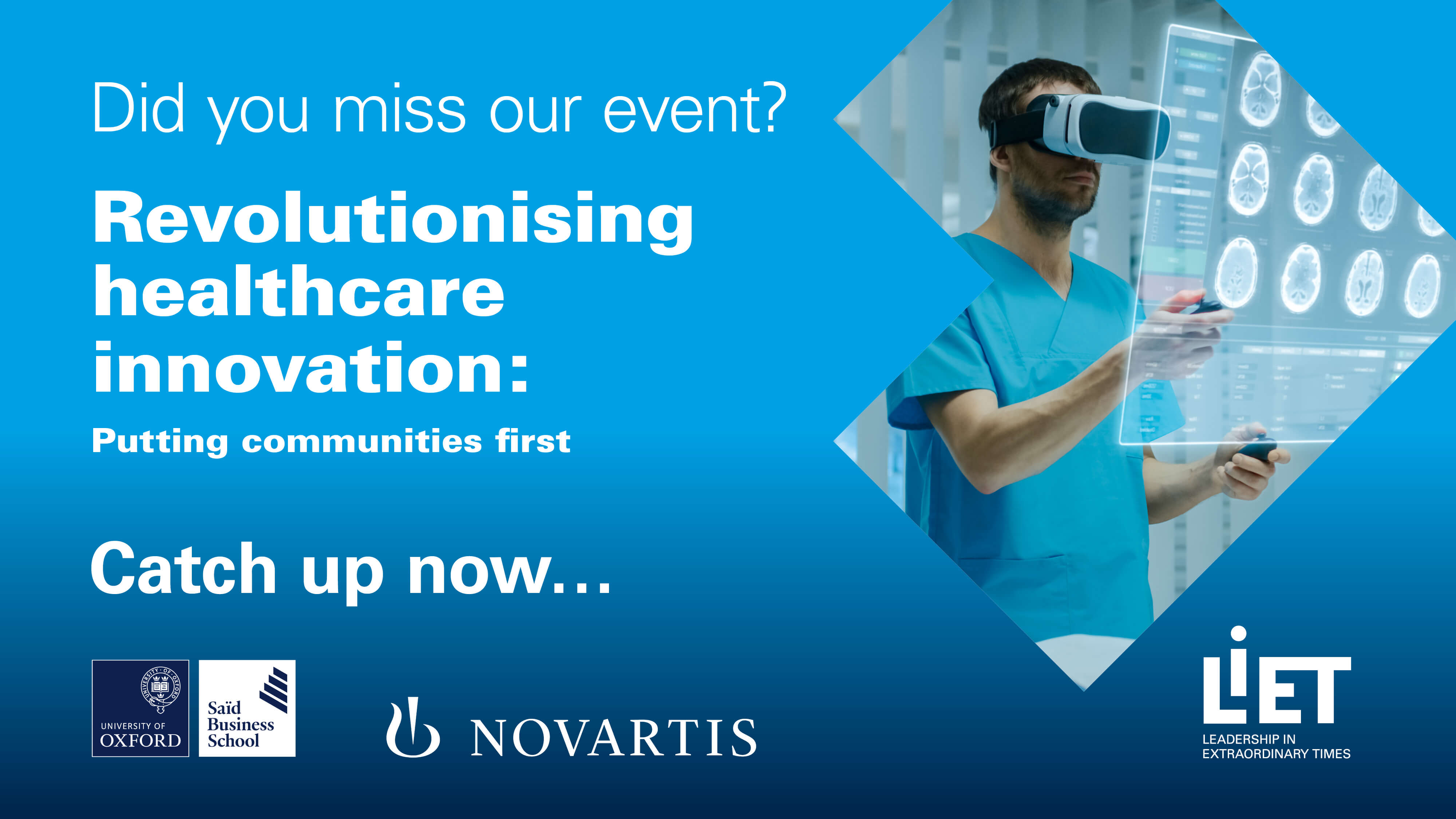Revolutionising healthcare innovation: Putting communities first

The generation of the Oxford/AstraZeneca Covid vaccine in 10 months, rather than the eight or nine years that are usual for vaccine development, was a triumph of collaboration between researchers, regulators, policymakers and the private sector, said Chas Bountra, Pro-Vice Chancellor for Innovation and Professor of Translational Medicine at the University of Oxford. It showed that by ‘pulling in the same direction … we can do the impossible’, and that when universities work with industry and with other stakeholders in the healthcare community ‘we can be engines for innovation.’
Professor Bountra was speaking during the Leadership in Extraordinary Times broadcast on 23 March 2021, which he co-chaired with Srin Madipalli, the technology entrepreneur, investor, and accessibility expert. Together with Donna Walsh, Executive Director, European Federation of Neurological Associations, Maayan Ziv, Founder and CEO, AccessNow, Pēteris Zilgalvis, Head of Digital Innovation and Blockchain, European Commission, and Vreni Schoenenberger, Global Head of Public Affairs, Neuroscience, Novartis, they discussed the approaches to innovation needed to rebuild and improve health services after the pandemic.
Positive health outcomes are not just the result of treatment or what happens in the clinic Challenges to mobility and accessibility, for example, can have a serious negative impact on quality of life. We need broader, ‘beyond the pill’ solutions for a wide range of conditions.
Community-focused innovation has an outside-in perspective Rather than focusing on an individual’s disability or illness as the problem, it seeks to remove external barriers, such as those in the built environment, that limit independence and cause anxiety.
Patient communities and people with disabilities need to be involved at every stage ‘The risk we see with innovation is that we run down a route just because it can be done but not because it really should be done, and that is something I think only those living with and affected by the disorders we are talking about can really contribute to the conversation,’ said Donna Walsh.



